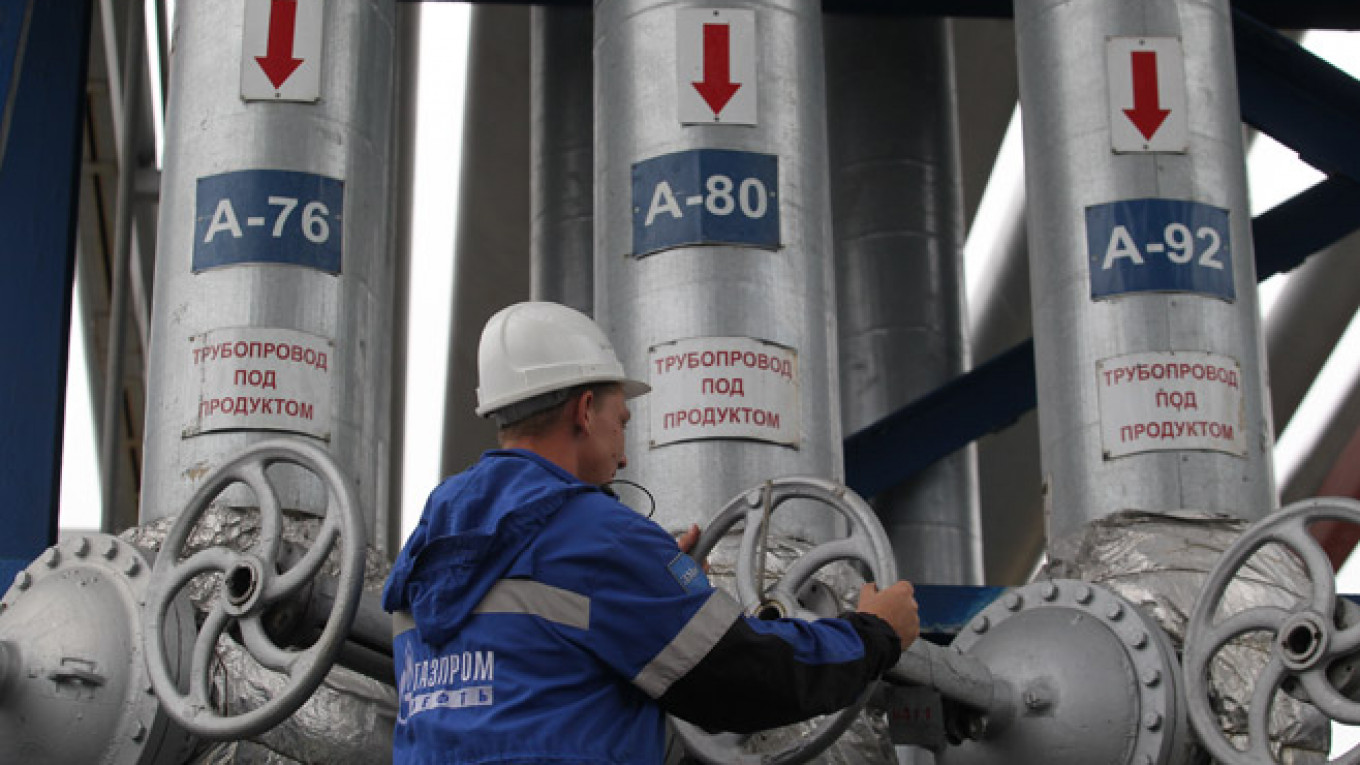President Vladimir Putin's visit to China, and the $400 billion gas supply deal that followed, was more than just a political move. Besides attempting to show that Western sanctions would not lead to Russia's isolation from the global market, it represents a major expansion of economic ties to China.
Moscow's ties to Beijing already extend far beyond gas. A plan to deliver the new S-400 Triumph missile system to China has already been approved and Moscow is considering the sale of new fighter aircraft and the joint production of helicopters.
The two countries are also looking at cooperation in civil aviation and even space. Russia is prepared to give China access to its technological "goodie bag" that holds Soviet-era technologies Beijing would like to have for its own projects.
Russia had previously used possible cooperation with China more as a way to bring the West to the bargaining table than as an end in itself. Over the years, Moscow's ruling elite became actively involved in Western life and looked at the East as something exotic — not as a vacation destination or a place to send their children to be educated.
Many important political decisions were aimed at integrating with the West — for example, Russia's accession to the World Trade Organization or its participation in the Bologna Process, an effort to standardize university education among signatory countries.
That gave the West the impression that the Russian elite would do anything in return for a Schengen visa. However, the elite have lost faith in the West. Pure survival instinct has led many of these formerly pro-Western clans to start working actively with China.
As the number of "friends of China" continues to grow, old taboos are broken down. For example, Rosneft has reversed its previous policy and is now permitting Chinese businesses to become equity partners in a number of projects.
Russia's choice of international partners is limited, of course, because it must urgently gain greater access to the international capital market. China represents one of Moscow's few hopes in this regard because, in a number of financial issues, it is in the same boat as Russia.
Russia can even look to China to lead the way in certain instances. Western sanctions have prompted Russia to consider creating its own national payment system, which may take inspiration from China's UnionPay system, a network that has already achieved success in its domestic market. It is too early to think seriously about linking such payment systems to international banking, but it might be possible to link China's with Russia's, and even to create an alternative to the SWIFT method of interbank transfers between the two countries.
However, Russia will never be able to fully replace the West with China, and it might pay a high price for trying. The Chinese are complex partners. They are skilled at defending their own interests and have managed to coerce even those who consider themselves Beijing's closest partners.
Although there certainly are benefits, it remains unclear in the long run whether Russia stands to gain from a closer friendship with China. Only one thing is certain: China will never miss an opportunity to exploit events to its own advantage.
Konstantin Simonov is General Director of the National Energy Security Fund. This comment appeared in Vedomosti.
A Message from The Moscow Times:
Dear readers,
We are facing unprecedented challenges. Russia's Prosecutor General's Office has designated The Moscow Times as an "undesirable" organization, criminalizing our work and putting our staff at risk of prosecution. This follows our earlier unjust labeling as a "foreign agent."
These actions are direct attempts to silence independent journalism in Russia. The authorities claim our work "discredits the decisions of the Russian leadership." We see things differently: we strive to provide accurate, unbiased reporting on Russia.
We, the journalists of The Moscow Times, refuse to be silenced. But to continue our work, we need your help.
Your support, no matter how small, makes a world of difference. If you can, please support us monthly starting from just $2. It's quick to set up, and every contribution makes a significant impact.
By supporting The Moscow Times, you're defending open, independent journalism in the face of repression. Thank you for standing with us.
Remind me later.






